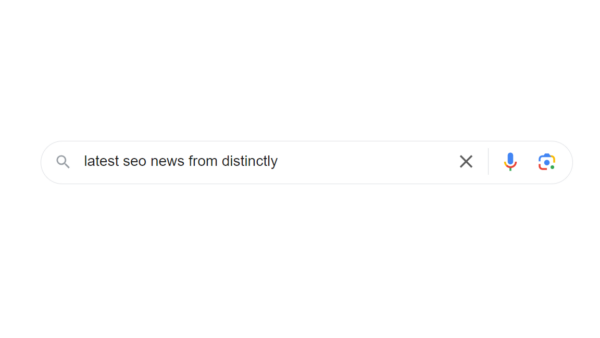Where should your SEO focus be in your first 6 months?
If you’re a business owner or marketing manager, it’s likely that you’ve considered investing in SEO. Depending on your business, marketplace and overall ambitions, SEO could be the perfect fit. However, weighing up your options and understanding what investing in SEO means in terms of strategy, aligning teams and expected results is always important. Hopefully, this article will shed some light on potential SEO returns and what you should focus on in the first six months to ensure your campaign is destined for success.
Setting expectations and explaining value
If senior executives or decision makers don’t have a good understanding of SEO or have been burnt by past experiences, then they might perceive the investment as a cost. From an agency perspective, it’s our job to change that perception. But how? Usually, it relies upon aligning the SEO strategy to the company’s KPIs – after all, this is what agencies will be judged on.
Changing perceptions also means answering fundamental questions during pitching or initial discussions:
- How long will it take for traffic to recover?
- How long will it take to rank no.1 for X keyword?
- When can we expect to see a return on investment?
What you need to focus on in the first six months
Of course, this is heavily dependent on where your business is. when you’re reconsidering your marketing activity and spend. The most common reasons why companies invest in SEO are:
- Traffic recovery – this could be related to an algorithm update or poor migration execution
- Website migration – with the aim to protect online visibility
- Keyword underperformance – wanting a clear strategy on how to appear for certain keywords
- Expanding online reach – to become an authority in their niche and markets
Below are the key areas where time is best spent in the first six months – this is from experience and will widely change depending on your business’s situation:
Cleaning up the technical foundations
There are many instances where businesses inherit enormous amounts of underlying optimisation issues which are likely holding them back. Addressing the most pressing issues and working with development partners to find the right solutions is recommended. The extent of issues will usually be unearthed by a technical audit. The audit will also deliver a strategic roadmap to start remedying these problems.
Cleaning up the technical foundations of a website isn’t the clearest ROI indicator but it essentially enables the rest of the SEO activities to take shape and have the desired effect. Some common issues as to why an audit might be required include:
- Parts of my website are not indexed
- Site speed is poor and is producing a poor user experience
- Mobile usability is underperforming
- Google’s not registering my new website
Depending on your niche and levels of competition, all of the above can contribute to a decline in rankings, traffic and leads but it’s important that any problem is correctly qualified and a remedial plan is put in place. You’ll need to be patient and allow enough time for Google to register the required changes – this is the pain point. This isn’t applicable to all audit items as there will most likely be “quick wins” along the way and it’s important these are actioned immediately.
Correct keyword targeting
Most businesses heavily rely on built-in SEO plugins to manage their organic visibility – this can be problematic and will likely affect your ability to appear in front of the right audience who are willing to convert. Undertaking keyword research and evaluating what you want to be found for, is the first step in any ongoing SEO strategy. These activities will allow agencies and clients to collaborate and align their efforts in targeting specific “money” terms. Not only will keyword research unearth what the current website can improve on, but it will also identify new opportunities that your business could benefit from.
Having these conversations at the earliest stage will help businesses reevaluate their digital strategy and prioritise their target terms through improved optimisation and further content opportunities. Gaining insights from your existing customer base as well as verifying which queries users are using when landing on your website is a good starting point. This will present the quickest opportunity to meet your user intent through useful content.
Building an effective content strategy
Producing useful and informative content for your audience will always be a sound strategy. However, it’s important that every piece of content you produce has a purpose. So ask yourself, what do I want my visitors to do? It could be…
- Buy a product
- Sign up
- Download a resource
- Digest authoritative content / improve user retention
- Improve our visibility for X keyword
From an SEO standpoint, producing relevant content which is closely associated with one of your target keywords will remain an effective strategy. This supporting content will demonstrate to Google how authoritative you are on the topic and how these additional pieces can leverage your visibility for your priority terms.
With any content strategy, it can take time for Google to acknowledge your new content and start building your online presence. Patience is key when you’re in this stage of your content journey. Further work on improving the quality of your content and meeting the user intent is a continuous activity as Google and users like freshness. This will ensure every piece is up-to-date and is in optimal condition to rank for your target queries.
In summary
Your first six months of SEO activity should be majorly focused on setting priorities, expectations and investing energy in a strategy. This will ensure all of the SEO work is aligned with your KPIs and will continue to add value throughout. Depending on the state of the website and the competition in the marketplace, the time for Google to register the changes can vary and it’s really important that you remain agile and have open communication with your agency. Patience is required in some capacity but identifying the low-hanging fruit will always be capitalised on whilst the more significant activities are underway.


